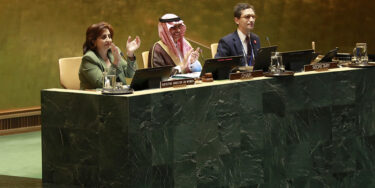Muslim Women In India Ask Top Court To Ban Instant Divorce
31.03.17
(Family law / Gender-based discrimination / Tradition, Culture, Religion)
Women in India are fighting the harmful talaq divorce practice in court.
Married at 14 and divorced by 16, Seema Parveen had a marriage as brutal as it was short. Now 42, Parveen remembers her husband threatening to hurl her from the balcony of their home. She blinks back tears recalling his rage when she bore him a daughter and not a son.
“His whole family was upset,” she says. In conservative northern India where they lived, boys are preferred over girls — who have been traditionally viewed as a burden. When her daughter was one month old, Parveen went to stay with her mother. “That’s when my husband wrote and said, ‘Talaq.‘ ”
All that’s required for a Muslim man in India to end a marriage is to declare, talaq, which means divorce in Arabic. Pronounced three times, it’s irrevocable. Many Islamic countries have banned the practice.
Parveen says her husband rebuffed all her attempts to return to him.
“I was so young,” she says, “I didn’t know what was happening.”
Maimoona Mollah, president of the All India Democratic Women’s Association, Delhi Chapter, condemns the practice of talaq as “unilateral” and “arbitrary.”
Mollah says women can also initiate divorce. But members of the community say a woman must first consult a cleric, while a man, she says, “severs the relationship” on his own. She says there needs to be a “formal process” for any divorce where a woman and her children receive financial support.
The way talaq is practiced, “it definitely stands in the way of a woman getting her rightful place,” Mollah says.
Several divorced women have petitioned India’s Supreme Court to ban this form of instant divorce. Countries including Pakistan, Tunisia, and Egypt have curbed the practice and moved divorce into the orbit of the state and judiciary.
Zakia Soman, co-founder of the Indian Muslim Women’s Movement, says the courts provide women “a level playing field.” But she says reforming the Indian Muslim community’s divorce customs won’t be easy.
“Legal reform is just one part of overall reform which is required in society … This is just the beginning,” she says.




